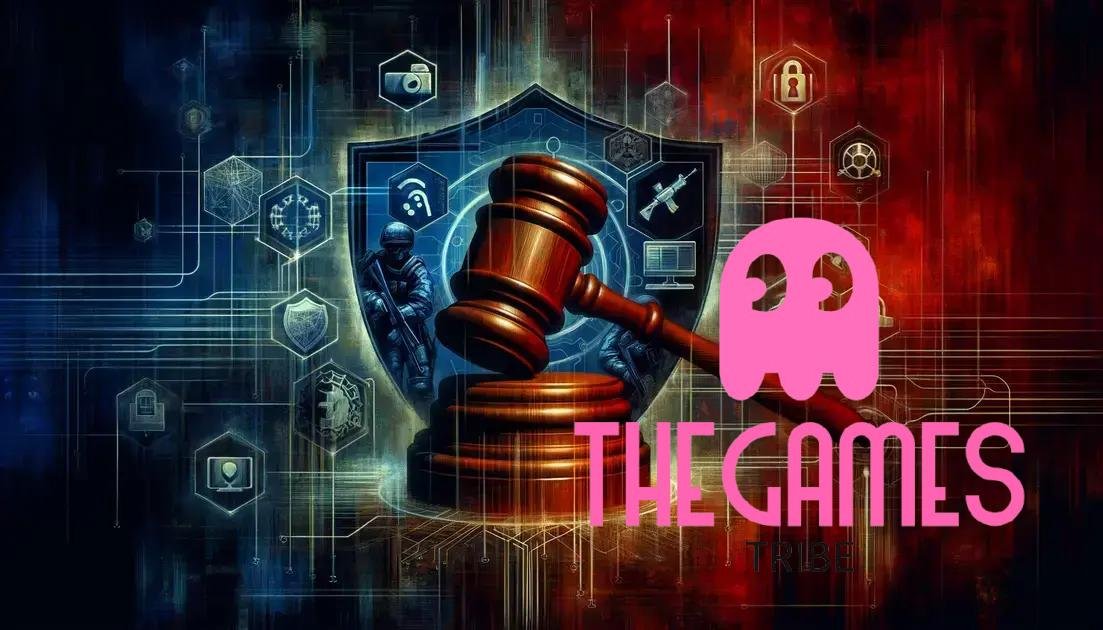Activision is enforcing stricter measures against Call of Duty players using VPNs to ensure fair play and combat cheating, which affects those seeking access to restricted content or better connectivity. Alternatives like Smart DNS and dedicated game servers are becoming popular among gamers looking to enhance their experience without the risk of bans. The future of VPN usage in Call of Duty is uncertain, with potential for stricter regulations and the emergence of gaming-friendly VPNs as players adapt to changes in the online gaming environment.
Activision’s recent crackdown on Call of Duty VPN users has raised eyebrows in the gaming community. Players are questioning the implications of these actions on their gaming experience and privacy.
In this article, we will explore the reasons behind Activision’s strict measures and what it means for players who rely on VPNs for their gameplay.
Understanding the VPN Usage in Gaming
The use of VPNs (Virtual Private Networks) in gaming has become increasingly popular among players looking to enhance their gaming experience. But why do gamers turn to VPNs in the first place? Here are a few key reasons:
Accessing Regional Content: Many gamers use VPNs to access games or content that may be restricted in their region. This allows them to play titles that are not officially available in their country, giving them a broader range of gaming options.
Reducing Lag and Improving Speed: Some players believe that connecting through a VPN can help reduce lag and improve connection speeds by routing their traffic through less congested servers.
Enhanced Privacy and Security: VPNs encrypt a player’s internet connection, providing an extra layer of security against potential DDoS attacks and protecting personal information from prying eyes.
Bypassing IP Bans: In some cases, players who have been banned from a game may use a VPN to create a new IP address, allowing them to circumvent restrictions and continue playing.
However, while VPNs can offer these advantages, they also come with potential risks and consequences, especially in competitive gaming environments. Understanding both the benefits and drawbacks of VPN usage in gaming is crucial for players who want to make informed decisions.
Reasons for Activision’s Crackdown

Activision’s decision to crack down on Call of Duty VPN users stems from several key reasons aimed at maintaining the integrity of the game and ensuring a fair playing field for all.
Here are the main factors driving this crackdown:
- Fair Play Enforcement: One of the primary reasons for Activision’s actions is to uphold the principles of fair play. VPNs can give players an unfair advantage by allowing them to manipulate their location, which can lead to matchmaking discrepancies and an uneven playing field.
- Combatting Cheating: VPNs are often used by players to hide their true identities and circumvent bans. By cracking down on VPN usage, Activision aims to reduce cheating and maintain a competitive environment, which is essential for preserving the game’s reputation.
- Protecting Server Integrity: The use of VPNs can put additional strain on game servers, leading to performance issues for all players. By limiting VPN access, Activision seeks to protect the overall integrity and performance of their servers.
- Legal and Licensing Issues: Activision has legal obligations to enforce regional restrictions and licensing agreements. VPN usage can violate these terms, prompting the company to take action against users who bypass geographical limitations.
- Community Feedback: The gaming community has voiced concerns about the impact of VPN users on their gaming experience. Activision is likely responding to player feedback by taking steps to address these concerns and improve overall satisfaction among legitimate players.
In summary, Activision’s crackdown on VPN users is a multifaceted approach to ensure fair play, combat cheating, and maintain the integrity of the Call of Duty experience for everyone.
Impact on Players Using VPNs
The crackdown on Call of Duty VPN users by Activision has significant implications for players who rely on VPNs for various reasons. Here’s how this move affects them:
- Loss of Access: Players who use VPNs to access restricted content may find themselves unable to play certain games or features. This restriction can lead to frustration, especially for those who invested time and money into games that are no longer accessible.
- Increased Risk of Bans: With Activision actively monitoring and penalizing VPN usage, players risk being banned from the game altogether. This is particularly concerning for competitive players who could lose their accounts and progress due to a simple VPN connection.
- Gameplay Experience Alteration: Many players use VPNs to reduce lag or improve connection speeds. With the crackdown, these players may experience increased latency or connectivity issues, negatively impacting their overall gaming experience.
- Privacy Concerns: Players who previously relied on VPNs for enhanced privacy may feel exposed without them. The lack of encryption can leave personal information vulnerable to potential threats, which is a significant concern for many gamers.
- Adaptation to New Strategies: Gamers will need to rethink their strategies and possibly find alternative solutions to achieve their goals without the use of VPNs. This may involve finding new ways to connect with friends or accessing content legally through official channels.
In conclusion, while Activision’s crackdown aims to create a fairer gaming environment, it poses challenges for VPN users who must now navigate a changing landscape in the Call of Duty community.
Alternatives to VPNs for Gamers

As Activision tightens its grip on Call of Duty VPN users, gamers are left searching for viable alternatives to enhance their gaming experience without risking bans or penalties. Here are some options:
Smart DNS Services: Unlike traditional VPNs, Smart DNS services can bypass geographical restrictions without encrypting data. This allows players to access region-locked content while maintaining faster speeds, making it a suitable alternative for many gamers.
Dedicated Game Servers: Joining dedicated servers or communities that cater to specific regions can provide a more stable and fair gaming environment. Many games offer official dedicated servers that ensure better performance and lower latency.
Proxy Servers: While not as secure as VPNs, proxy servers can help gamers mask their IP addresses. However, players should be cautious, as some proxy services may not provide the same level of anonymity and security.
Local Network Optimization: Improving your local network setup can significantly enhance gaming performance. This includes using wired connections instead of Wi-Fi, optimizing router settings, and reducing network congestion by limiting other devices while gaming.
Consulting with ISPs: Some internet service providers offer gaming-specific plans that prioritize gaming traffic. Players can reach out to their ISPs to see if they can get a better connection tailored for gaming.
By exploring these alternatives, gamers can maintain a competitive edge and enjoy their favorite titles without the risks associated with VPN usage.
Future of VPNs in Call of Duty
The future of VPNs in Call of Duty is uncertain, especially with Activision’s recent crackdown. However, several trends and possibilities may shape how VPNs are perceived and utilized in the gaming community:
Increased Regulation: As game developers continue to enforce stricter regulations against VPN usage, players may see a decline in the effectiveness of VPNs for gaming purposes. This could lead to more players abandoning VPNs altogether in favor of compliant methods.
Development of Gaming-Friendly VPNs: In response to the crackdown, some VPN providers may adapt by creating gaming-specific services that comply with game developers’ policies while still offering benefits like reduced latency and enhanced security.
Community Advocacy: Players may begin advocating for more transparency and fairness in how games handle VPN users. This could result in discussions around acceptable use cases for VPNs, leading to potential policy changes from developers.
Technological Advances: As technology evolves, so do the capabilities of VPNs. Future advancements may lead to more sophisticated methods of using VPNs that could evade detection while still providing the privacy and security gamers desire.
Shift Towards Alternative Solutions: With the crackdown, gamers may increasingly turn to alternative solutions, such as Smart DNS or dedicated servers, which could diminish the overall reliance on VPNs in the gaming community.
Ultimately, the future of VPNs in Call of Duty will depend on how both players and developers adapt to the changing landscape, balancing the need for fair play with the desire for privacy and access.
FAQ – Frequently Asked Questions about Call of Duty VPN Usage
Why are VPNs popular among gamers?
Gamers use VPNs to access region-locked content, reduce lag, enhance privacy, and bypass IP bans.
What are the risks of using a VPN in Call of Duty?
Using a VPN can lead to account bans, loss of access to games, and potential connectivity issues.
What alternatives are available for gamers instead of VPNs?
Alternatives include Smart DNS services, dedicated game servers, proxy servers, local network optimization, and consulting with ISPs.
How is Activision enforcing its crackdown on VPN users?
Activision is monitoring VPN usage and penalizing users to maintain fair play and game integrity.
What impact does the crackdown have on the gaming community?
The crackdown can lead to frustration among players who rely on VPNs, affecting their gaming experience and access to content.
What does the future hold for VPNs in Call of Duty?
The future may see increased regulation, development of gaming-friendly VPNs, and a shift towards alternative solutions as players adapt.
